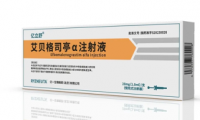-
New antibiotic to fight infections caused by multidrug-resistant bacteria
- Source: drugdu
- 495
- March 26, 2024
-
Yi Li Shu® Approved in the European Union, Becoming the First Innovative Biological Drug Approved in China, the U.S. and Europe
- Source: drugdu
- 488
- March 26, 2024
-
Innovate UK awards ten projects over £6m to develop new clinical tools for dementia
- Source: drugdu
- 370
- March 26, 2024
-
Four international teams awarded £4.7m to investigate heart and circulatory diseases
- Source: drugdu
- 539
- March 26, 2024
-
FDA Fast Tracks ImmVira’s Oncolytic Herpes Simplex Virus Therapy for Head and Neck Squamous Cell Cancer
- Source: drugdu
- 491
- March 25, 2024
-
Precision Medicine Startup Mirador Unveils $400M for R&D of New I&I Drugs
- Source: drugdu
- 391
- March 25, 2024
-
Biomechanical model simulates breast tumor growth
- Source: drugdu
- 321
- March 25, 2024
-
Capital Rx, Prime Therapeutics Form Strategic Alliance
- Source: drugdu
- 498
- March 25, 2024
-
AstraZeneca Joins Radiopharma Deals Spree With $2B Fusion Acquisition
- Source: drugdu
- 394
- March 23, 2024
your submission has already been received.
OK
Subscribe
Please enter a valid Email address!
Submit
The most relevant industry news & insight will be sent to you every two weeks.

















